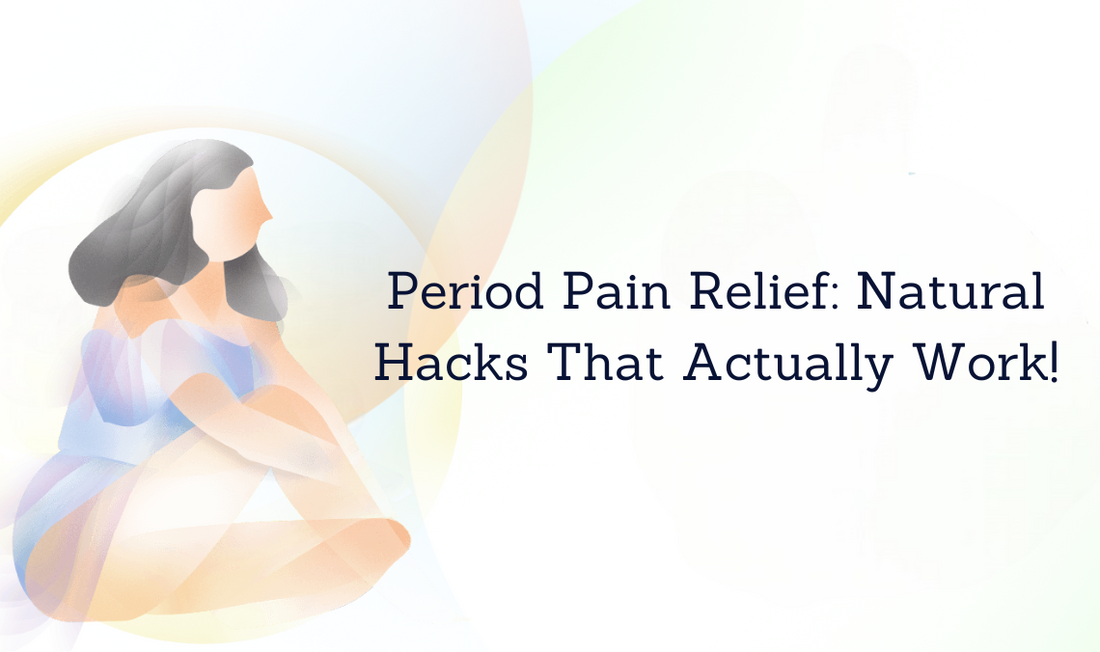Embrace the Power of Nature: Your Guide to Natural Cramp Solutions
Managing menstrual cramps can be a difficult task, as the pain can range from mild discomfort to severe, debilitating pain. While there are over-the-counter medications available to help manage the pain, many women prefer to turn to natural remedies to alleviate their symptoms. In this blog post, we will explore some of the most effective natural solutions for managing menstrual cramps.
Effective Natural Remedies:
Ginger Power: Soothing Your Ache with Spice
One of the most effective natural remedies for menstrual cramps is ginger. Ginger contains compounds called gingerols and shogaols that have anti-inflammatory and pain-relieving properties. To use ginger to alleviate menstrual cramps, try drinking ginger tea or taking a ginger supplement. You can also add ginger to your food, such as by grating it and adding it to soups or stir-fries.
Move it Out: Exercise as Your Cramp-Busting Buddy
Exercise can also be a great natural remedy for menstrual cramps. Regular physical activity can help to reduce stress and promote the release of endorphins, which are the body's natural pain-relieving chemicals. Exercise also helps to improve circulation, which can help to reduce cramping. To use exercise as a remedy, try to get 30 minutes of moderate-intensity exercise, such as brisk walking or cycling, most days of the week.
Heat Hug: Warmth's Embrace Against the Aches
Heat therapy is also a good option for managing menstrual cramps. The warmth of a heating pad or hot water bottle applied to the lower abdomen can help to relax the muscles and reduce cramping. You can also try taking a warm bath or shower to help relax the muscles and alleviate cramping.
Stress Saviors: Calming Techniques for Inner Harmony
Lastly, taking some time to relax and de-stress can also help to alleviate menstrual cramps. Stress can cause the muscles to tense up, which can make cramping worse. Try to find ways to relax, such as yoga, meditation, deep breathing, or reading a book, during the week before your period to help reduce stress and alleviate cramping.
Here are a few more points to consider when managing menstrual cramps with natural solutions:
Diet Decoded: Food Choices for a Cramp-Free Period
Eating a healthy diet rich in fruits, vegetables, and whole grains can help to reduce inflammation and cramping. Some women find that avoiding certain foods, such as caffeine, alcohol, and processed foods, during their menstrual period can help to alleviate cramps.
Magnesium Magic: Boosting Relaxation with a Mineral Ally
Magnesium is an essential mineral that helps to relax muscles and reduce cramping. Try incorporating foods rich in magnesium, such as spinach, almonds, and dark chocolate, into your diet. You can also take a magnesium supplement if advised by a healthcare professional.
Herbal Helpers: Exploring Supplements with Caution
Herbal supplements such as cramp bark, black cohosh, and dandelion root can also be used to help reduce cramps. These supplements are believed to help to relax the uterus and reduce cramping. You should always speak with a healthcare professional before taking any herbal supplements as it can interact with other medications you are already taking.
Yoga Flow: Gentle Stretches for Cramp-Free Bliss
Yoga or any kind of gentle stretching exercises can be beneficial for menstrual cramps. Yoga poses such as the seated spinal twist and the wide-legged forward bend can help to stretch out the abdominal and lower back muscles, which can help to reduce cramping.
Sleep Sanctuary: Resting Your Way to Period Peace
Sleep is also important for reducing menstrual cramps, as lack of sleep can exacerbate pain. Aim to get at least 7-8 hours of sleep each night.
In conclusion, menstrual cramps can be exhausting for many women, but there are a variety of natural remedies that can help to alleviate the pain and discomfort associated with them. From ginger to exercise, the options are varied, and some of them may work better for one woman than another. It's always important to consult with a healthcare professional before making any significant changes to your diet or exercise routine, or before taking any supplements or herbal remedies.

